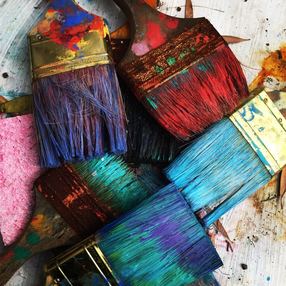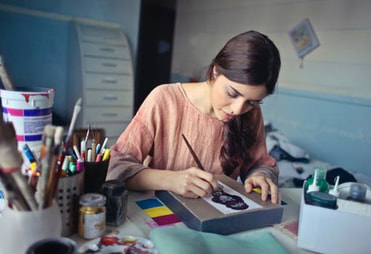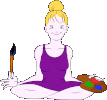What is Art Therapy?

Art Therapy is a mental health profession in which a licensed, masters level Board-Certified Clinician works with clients using art materials, the creative process, and their creations to explore thoughts, beliefs, to reconcile emotional conflicts, develop self-awareness, manage behaviors, enhance social skills, improve reality orientation, reduce anxiety, and increase a sense of self-worth. Art Therapists strive to improve/restore a client’s functioning and his or her sense of personal well-being. An Art Therapist requires knowledge of visual art (drawing, painting, sculpture, and other art forms) and the creative process, as well as of human development, psychological, and counseling theories and techniques.
Here is a link to a brief video on creativity, the brain, and trauma resolution:
youtu.be/aoMwS_0PXOU
youtu.be/aoMwS_0PXOU
Who is Art Therapy For?

Those who are affected by
(but not limited to) :
-ADHD
-Neurological & Developmental Diversity
-Anxiety & Depression
-Grief & Loss
-Trauma
-Difficult Transitions
-Family Dynamics
-Aging, Dementia, & Life Review
-School/Academics
-Parenting
-Stress -Unresolved Issues
-Limiting Thoughts, Actions & Beliefs
Verbally and non-verbally expressive people benefit.
NO PRIOR ART EXPERIENCE OR “SKILL” IS NEEDED.

Private Sessions
There is currently a wait list for new 1:1 clients. I can work as a primary or adjunct therapist (additional support alongside your current therapist.) Treatment is tailored to meet individual needs and I use a variety of approaches, not limited to behavioral, strength-based, adaptive information processing, ego state therapy, cognitive-behavioral, mindfulness-focused, object relations, psycho-dynamic, developmentally focused, sensory integration, and more.
